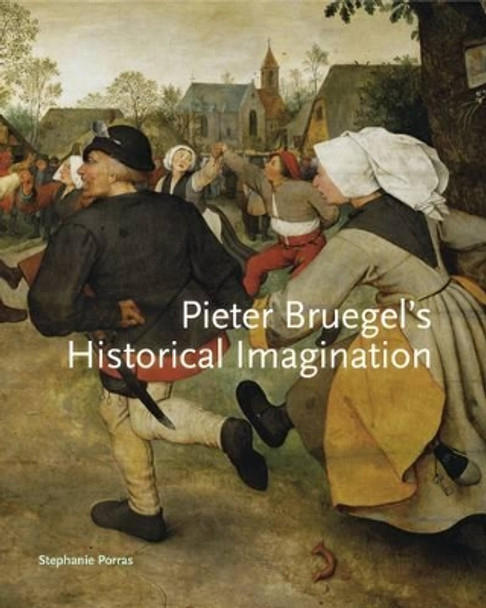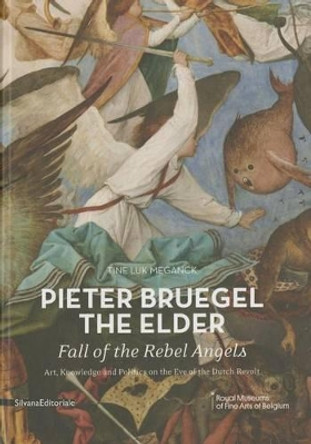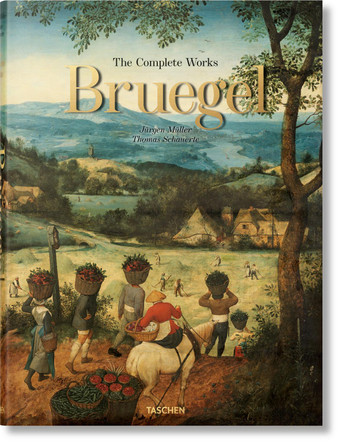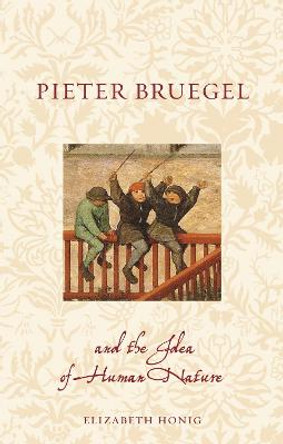Description
The question of how to understand Bruegel's art has cast the artist in various guises: as a moralizing satirist, comedic humanist, celebrator of vernacular traditions, and proto-ethnographer. Stephanie Porras reorients these apparently contradictory accounts, arguing that the debate about how to read Bruegel has obscured his pictures' complex relation to time and history.
Rather than viewing Bruegel's art as simply illustrating the social realities of his day, Porras asserts that Bruegel was an artist deeply concerned with the past. In playing with the boundaries of the familiar and the foreign, history and the present, Bruegel's images engaged with the fraught question of Netherlandish history in the years just prior to the Dutch Revolt, when imperial, religious, and national identities were increasingly drawn into tension. His pictorial style and his manipulation of traditional iconographies reveal the complex relations, unique to this moment, among classical antiquity, local history, and art history.
An important reassessment of Renaissance attitudes toward history and of Renaissance humanism in the Low Countries, this volume traces the emergence of archaeological and anthropological practices in historical thinking, their intersections with artistic production, and the developing concept of local art history.
About the Author
Stephanie Porras is Assistant Professor of the History of Art at Tulane University.
Reviews
"Porras (Tulane Univ.) elucidates the complex relationship between Bruegel's paintings and their various contexts, including the intellectual past and the creation of a Netherlandish historical identity. . . . This book is well worth reading for its nuanced interpretation of one of the most popular and beloved painters of the northern Renaissance."
-A. Golahny Choice
"By raising and rephrasing so many questions of central concern not only to our understanding of Bruegel but also to early modern Antwerp in general, Pieter Bruegel's Historical Imagination expands the discourse in new directions. As we continue with nervous laughter to venture into the worlds of Bruegel's peasants, and struggle like Ortelius to understand them, Porras's book will surely remain an engaging source for future study."
-Marisa Anne Bass The Historians of Netherlandish Art
"A thoughtful, intelligent, and learned book. Stephanie Porras culminates many (lesser but) related studies on Pieter Bruegel with new material and a defining argument and provides the most current assessment of the painter's peasant subjects. For art historians it will serve as a rich mine of cultural history, literary history, intellectual history, and even music history about Flemish culture on the eve of the Dutch Revolt."
-Larry Silver,University of Pennsylvania
"A smart, important book. . . . Porras has illuminated an aspect of Bruegel's art that has always been present, though we did not recognize it."
-Arthur J. DiFuria CAA.Reviews
"Bruegel is often cast as an artist who collects his subject matter, be it children's games, exempla of virtues and vices, Netherlandish and Latin proverbs, or peasants celebrating during the local kermis. Porras offers us a new facet of this artistic personality, one that has more agency than our previous portraits of the artist."
-Nina E. Serebrennikov Renaissance Quarterly
"By situating Bruegel's work within his culture's search for a Flemish 'vernacular antiquity,' Stephanie Porras gives us a new sense of how history could be visually conceptualized, manipulated, and deployed in the mid-sixteenth century and invites us to see familiar aspects of Bruegel's work as operating in an important context that has never been fully explored before. An engaging and important book."
-Elizabeth Alice Honig,University of California, Berkeley
"Stephanie Porras's Pieter Bruegel's Historical Imagination offers a fresh approach to Bruegel's peasant imagery. Smartly escaping the parameters of tired debates as to whether they offer moralizing comments of peasant excess or a lyrical vision of peasant culture for a town-dwelling elite, she argues that they constitute a form of 'history.' In an age that saw the revival of ancient arts and letters together with a rising sense of religious and political identity, Bruegel and his contemporaries found, in the life of the peasant, a means of suggesting the unity of past and present."
-Keith Moxey,Barnard College/Columbia University
"In shifting focus from Pieter Bruegel as a painter of everyday life to the historical imagination which informed his peasant paintings, Porras offers a new and fresh approach to this canonical artist. Porras's own historical imagination is impressive, based on meticulous and wide-ranging scholarship in both visual and textual materials. This book is an important contribution to the field."
-Joanna Woodall,The Courtauld Institute of Art, University of London
Book Information
ISBN 9780271070896
Author Stephanie Porras
Format Hardback
Page Count 216
Imprint Pennsylvania State University Press
Publisher Pennsylvania State University Press
Weight(grams) 1202g
Dimensions(mm) 254mm * 203mm * 25mm






